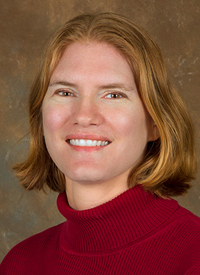
The governor of Oregon announced last week that all children, aged 5 and up, will be required to wear masks inside buildings, including schools. This immediately led to relief and praise from many and stress and anger from others. I have heard from other local pediatricians that they are fielding phone calls from many parents who want medical exemptions to this rule.
Some people argue that children won’t wear masks. This is true of some children. However, our clinic has had a mandatory mask policy for children over the age of 2 for several weeks. In the beginning, few young kids were successful at keeping the mask on throughout their entire appointment. That is rare now. I liken this to so many other things we teach children to do. Many young kids in my practice gleefully shun the gown we offer when asking them to change out of their clothes. Naked or almost naked? They are all in. Kids don’t like wearing pants or shirts or shoes. But we teach them that this is the social norm and if they want to be part of society, they will wear clothes. Now we add masks. They won’t like it at first because who does? But they will learn, just as all of us have learned and continue to learn.
In my observations of children and adults, I think adults project their own concerns onto children, which is unfounded but prophetic. Think of all the crazy things you have seen children comfortably wear and do. Routinely, they wear shoes on the wrong feet, wear their clothes backward or inside out, wear hats that are too tight or too loose, constantly falling over their eyes. I see kids wear Halloween masks that cover the entire face, sometimes on Halloween and sometimes not. Kids will wear 7 layers of scarves and boas until they can’t turn their necks, or they will march around in a swimsuit only, teeth chattering and lips blue, insisting they feel just fine. The point is, children are quite capable of doing things adults have lost the ability to do.
When we convey to children that we don’t expect them to be successful at something, they will probably fail. Instead, we must talk to them confidently about their ability to rise above a challenge. Hard things, like wearing a mask, are not impossible things. Instead of starting the conversation with, “I know this mask is hot and uncomfortable, but we have to wear it anyway,” try, “Isn’t it exciting that we can keep people healthy by wearing this mask?” Instead of confirming with a child, “Can you breathe?” you can ask, “Do you need to make any adjustments to make it a little more comfortable?” Start from the premise that this is something they can absolutely do. If they tell you about challenges, help them work through them. But don’t suggest challenges to them that they haven’t experienced.
As a pediatrician, I am in a position where I try to care for and protect everyone. For now, this means I wear a mask all day, throughout every patient and staff encounter. This is not to protect me, this is to protect the children I care for and their parents. In return, I expect these same children and parents to take care of my family and me by wearing a mask. If your child cannot wear a mask yet, I encourage you to practice with them. We are in this together.
Christy Rivers, D.O. , is a pediatrician at The Corvallis Clinic. She can be reached at 541-754-1278.
, is a pediatrician at The Corvallis Clinic. She can be reached at 541-754-1278.
